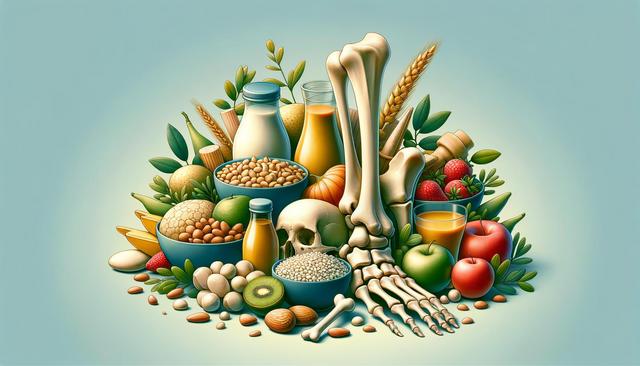Understanding Osteoporosis and Its Nutritional Needs
Osteoporosis is a condition that weakens bones, making them fragile and more likely to break. While it commonly affects older adults, especially postmenopausal women, it can impact people of all ages. Nutrition plays a crucial role in bone health, as bones require specific vitamins and minerals to stay strong and resilient. Among the most important nutrients are calcium and vitamin D—both essential for maintaining bone density and structure.
A balanced diet rich in bone-supporting nutrients can help slow down bone loss and even promote bone formation. Individuals concerned about osteoporosis should focus on food sources that naturally offer these key nutrients, rather than relying solely on supplements. Additionally, nutrient absorption can be influenced by lifestyle habits, so combining good nutrition with regular weight-bearing exercise and avoiding smoking or excessive alcohol can further enhance bone health.
Calcium-Rich Foods for Bone Strength
Calcium is the primary mineral found in bones, and consuming enough of it is essential for preventing osteoporosis. Adults typically need around 1,000 to 1,200 milligrams of calcium daily, depending on age and gender. Including calcium-rich foods in daily meals can provide this requirement naturally.
Some important sources of calcium include:
- Leafy green vegetables such as kale, bok choy, and collard greens
- Fortified plant-based milks and juices
- Sardines and canned salmon with bones
- Tofu made with calcium sulfate
- Almonds and sesame seeds
While dairy products are often cited as calcium sources, individuals who are lactose intolerant or follow a plant-based diet can still meet their needs through a variety of other options. It’s also important to note that calcium from food is often better absorbed than from supplements and comes with additional nutrients that support overall health.
Vitamin D and Its Role in Calcium Absorption
Vitamin D works hand-in-hand with calcium by helping the body absorb it effectively. Without sufficient vitamin D, even high calcium intake may not be enough to maintain bone strength. Sunlight exposure is a primary source of vitamin D, but dietary intake is especially important in regions with limited sunlight or during winter months.
Foods that contain or are fortified with vitamin D include:
- Fortified cereals and plant-based milks
- Mushrooms exposed to UV light
- Fatty fish like mackerel and sardines
- Egg yolks
Vitamin D needs can vary, but many adults require around 600 to 800 IU daily. For those with low blood levels, healthcare providers might recommend higher doses. Including both calcium and vitamin D-rich foods in meals can create a synergistic effect that strengthens bones and supports long-term skeletal health.
Magnesium, Vitamin K, and Other Supportive Nutrients
While calcium and vitamin D often get the spotlight, other nutrients like magnesium and vitamin K are also crucial for bone health. Magnesium helps regulate calcium levels in the body and contributes to the structural development of bone. Vitamin K, particularly K2, is involved in bone metabolism and helps direct calcium to the bones rather than soft tissues.
Sources of magnesium and vitamin K include:
- Whole grains such as brown rice and oats
- Green leafy vegetables like spinach and Swiss chard
- Nuts, seeds, and legumes
- Fermented foods such as natto (a source of vitamin K2)
Including a variety of whole foods in the diet ensures a broad spectrum of bone-supporting nutrients. Phosphorus, zinc, and protein also play a role and can be found in foods like beans, lentils, and whole grains. A balanced approach that includes these nutrients can help support the bone matrix and reduce the risk of fractures.
Foods to Limit for Better Bone Health
Just as some foods support bone health, others can have a detrimental effect. High sodium intake, for example, can increase calcium loss through urine. Excessive caffeine and alcohol may also reduce calcium absorption or interfere with bone metabolism over time. Managing these factors is as important as consuming the right nutrients.
Foods and habits to limit include:
- Processed foods high in salt
- Sugary soft drinks, especially those containing phosphoric acid
- Excessive caffeine from coffee or energy drinks
- Alcohol consumption beyond moderate levels
Keeping these items in moderation can help retain key minerals in the body and prevent bone density loss. It’s also important to avoid crash diets or restrictive eating that can lead to nutrient deficiencies. A consistent, balanced eating pattern is more effective in maintaining strong bones over the long term.


